
14 Q
7th

15 Q
7th - 8th
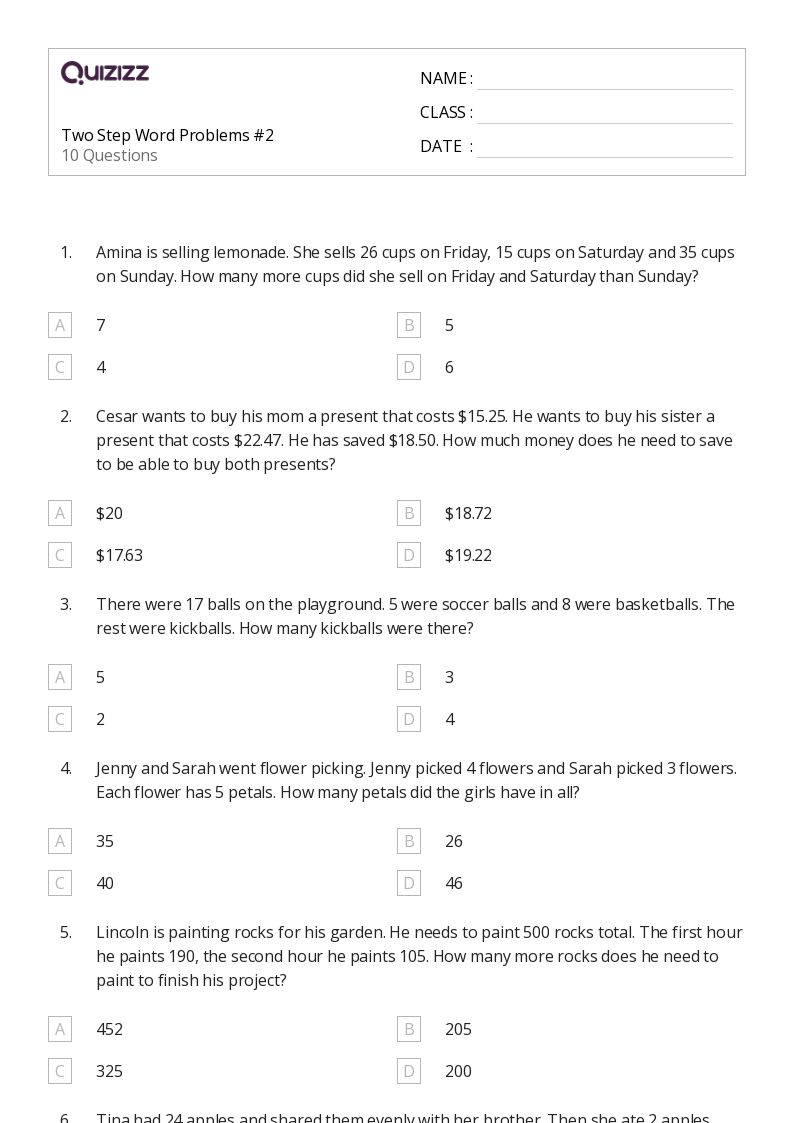
10 Q
5th - 6th

14 Q
3rd - 4th
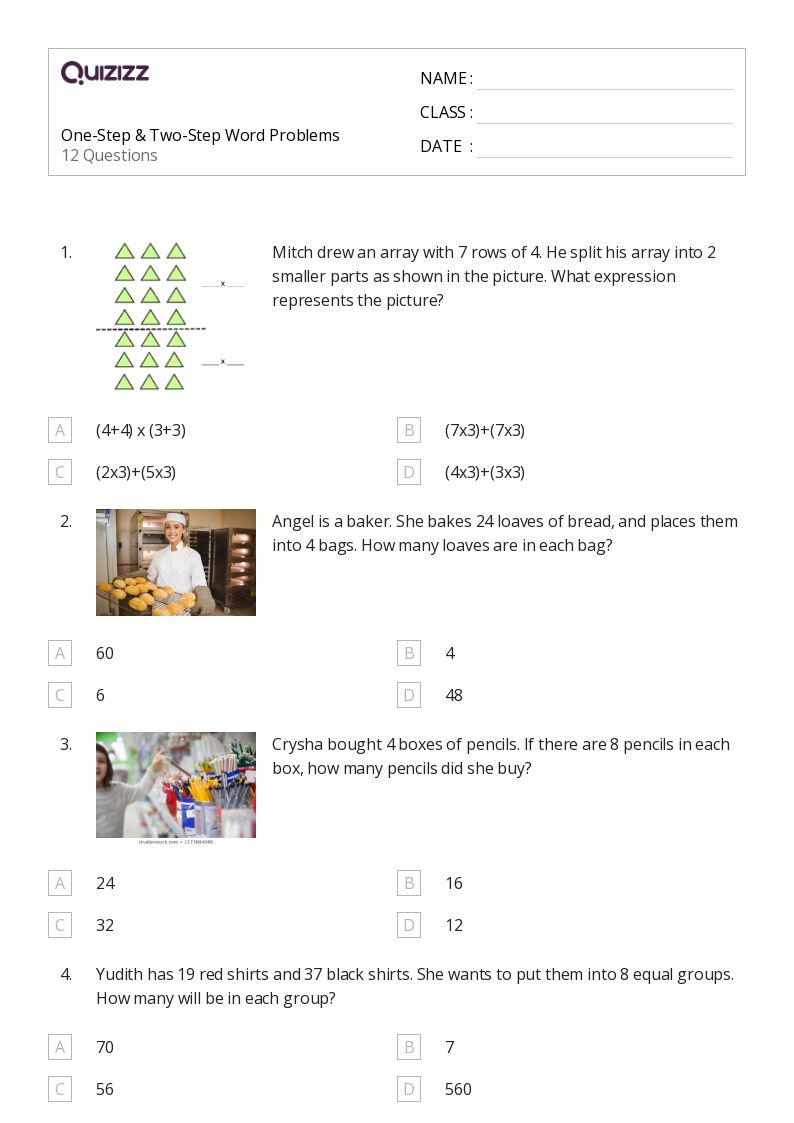
12 Q
3rd - 4th

5 Q
5th - 6th

11 Q
7th - 8th

10 Q
3rd

10 Q
5th - 6th

5 Q
1st - 3rd

8 Q
7th - 8th

15 Q
7th
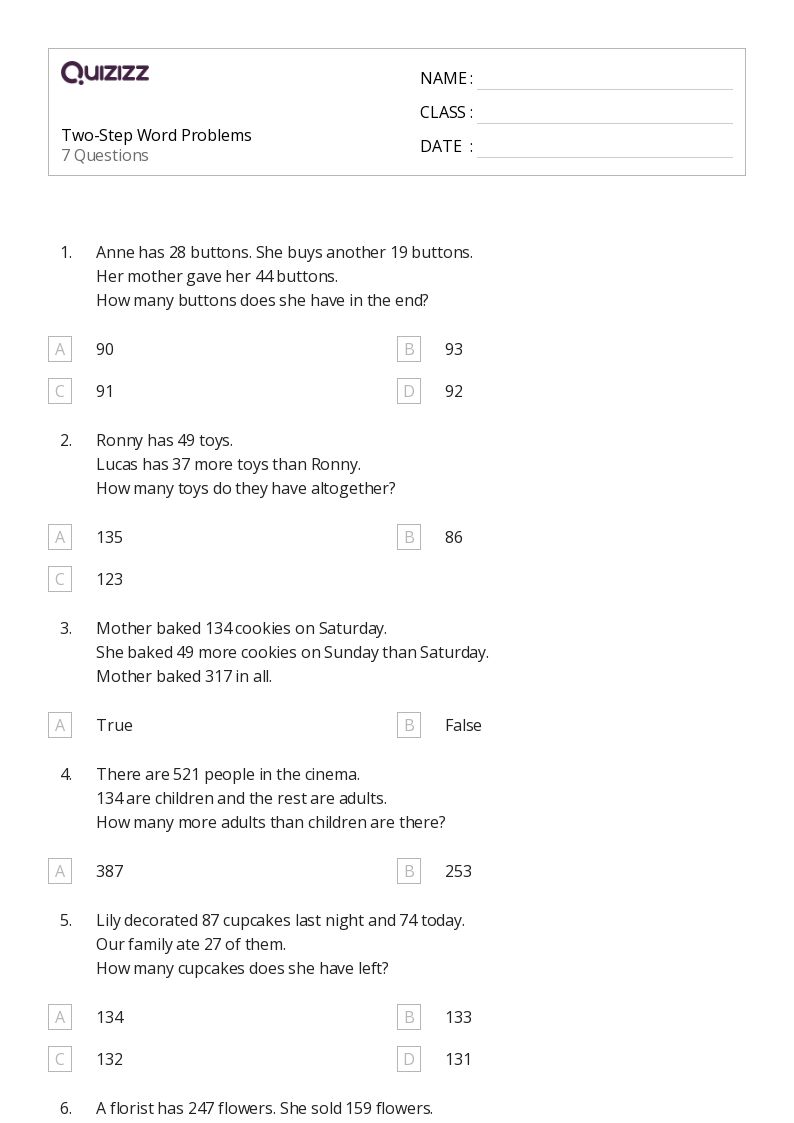
7 Q
1st - 2nd

11 Q
8th - 10th

10 Q
3rd
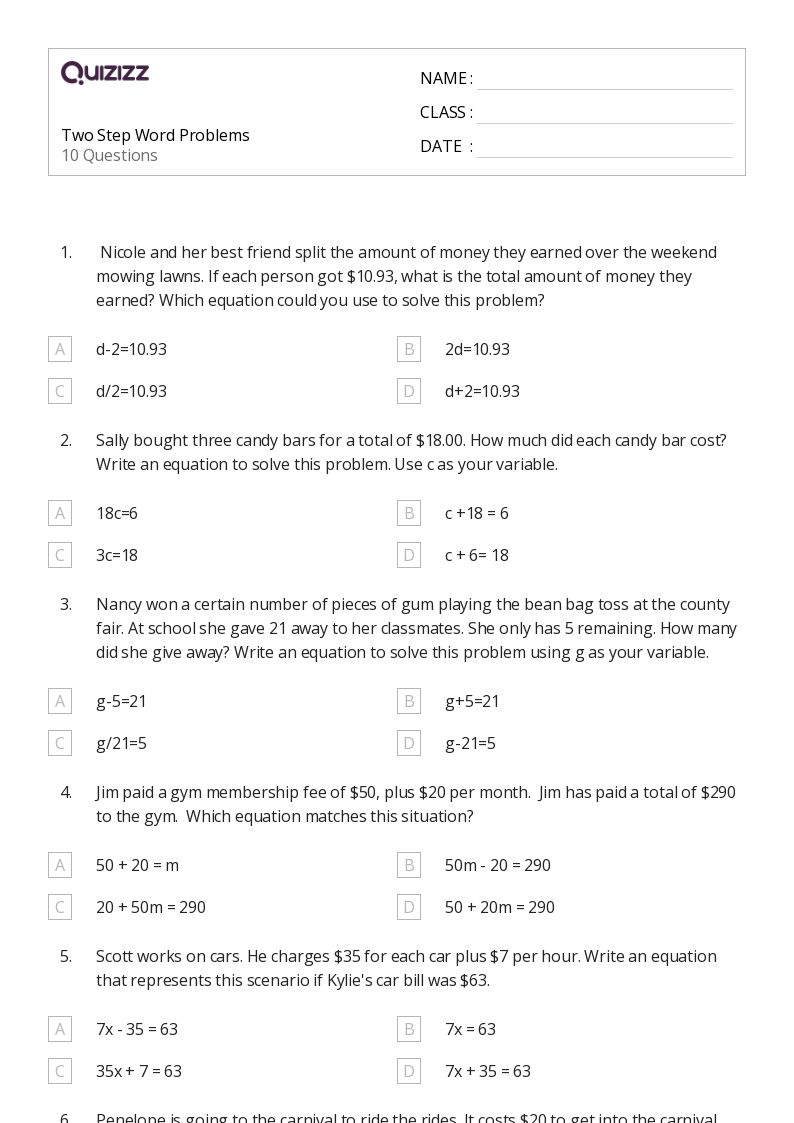
10 Q
8th

10 Q
1st - 3rd

11 Q
7th - 8th

15 Q
KG - Uni
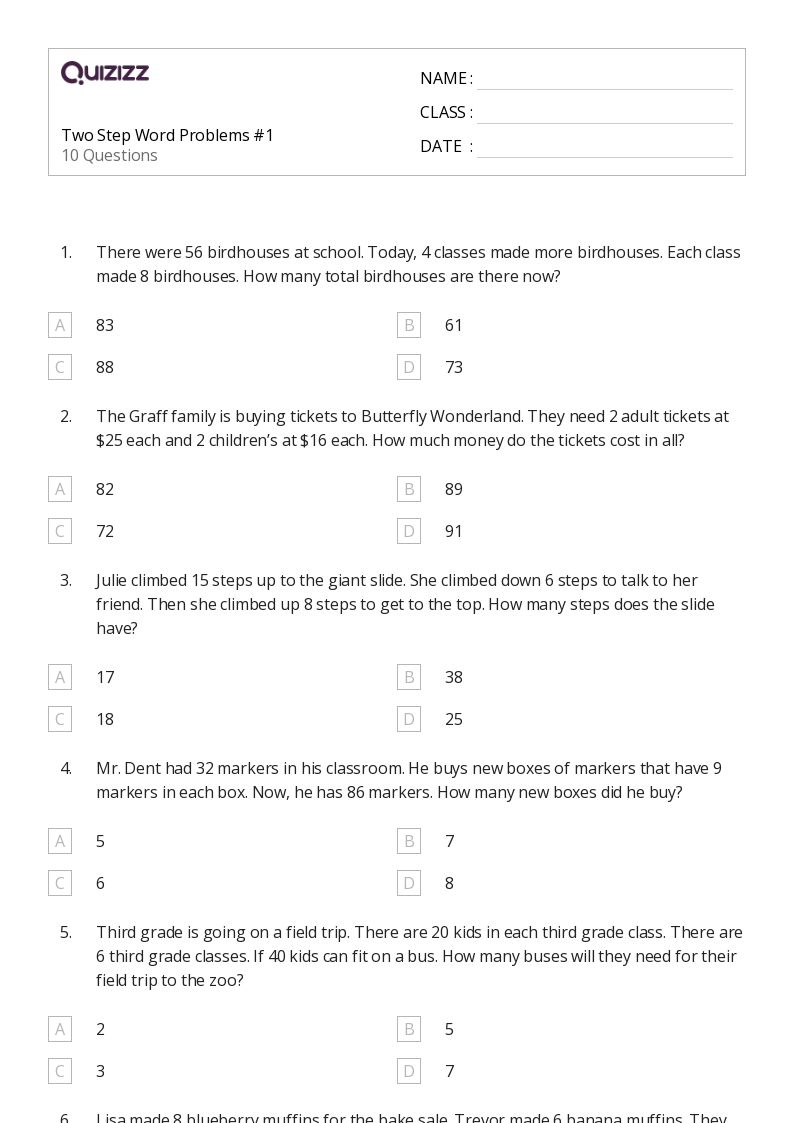
10 Q
5th - 6th
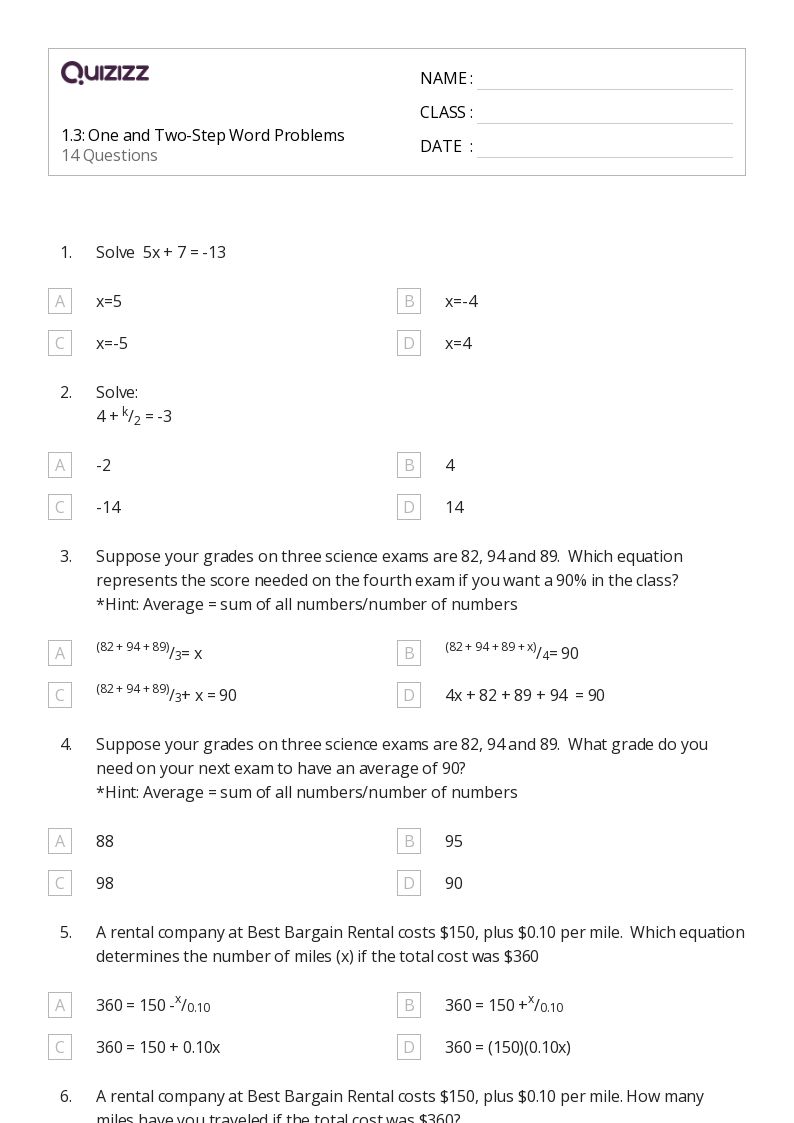
14 Q
8th - 10th

10 Q
KG - Uni

12 Q
KG - Uni

20 Q
3rd - 5th
Explore Worksheets by Subjects
Explore printable Two-Step Word Problems worksheets
Two-Step Word Problems worksheets are an essential tool for teachers looking to challenge their students and enhance their math skills. These worksheets, specifically designed for various grade levels, provide a unique opportunity for students to apply their knowledge of addition, subtraction, multiplication, and division in real-life situations. Math Word Problems, especially those involving Addition Word Problems, help students develop critical thinking and problem-solving skills, which are crucial for success in higher-level math courses. Teachers can use these worksheets to create engaging and interactive lessons, allowing students to work individually or in groups to solve the problems. By incorporating Two-Step Word Problems worksheets into their curriculum, teachers can ensure that their students are well-prepared for more complex mathematical challenges in the future.
Quizizz is an excellent platform for teachers to access a wide range of educational resources, including Two-Step Word Problems worksheets, Math Word Problems, and Addition Word Problems. This versatile platform offers a variety of features that make it easy for teachers to create customized quizzes, assignments, and interactive lessons for their students. With Quizizz, teachers can track student progress, identify areas of improvement, and provide targeted feedback to help students succeed in their math studies. In addition to worksheets, Quizizz also offers engaging game-based learning activities that can be used to reinforce key concepts and motivate students to excel in their math coursework. By incorporating Quizizz into their teaching strategies, educators can provide a comprehensive and dynamic learning experience for their students, ensuring that they develop the skills and confidence needed to tackle more advanced mathematical challenges.
